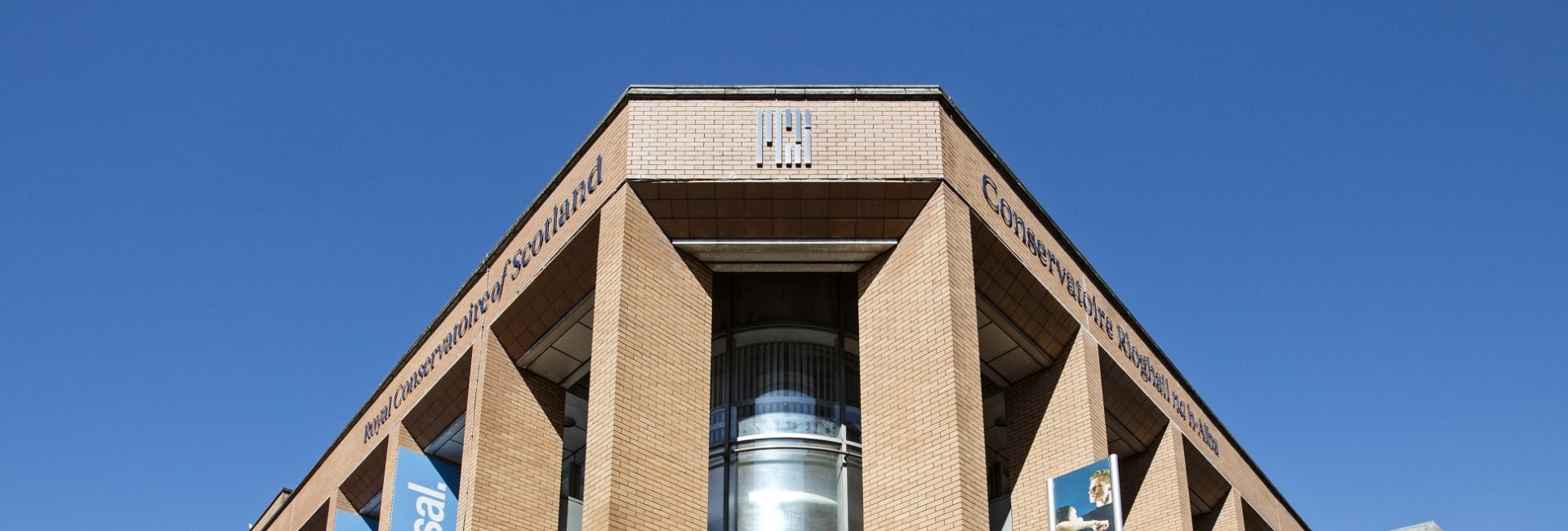Royal Conservatoire of Scotland: School of Music - Open Day
15 May 2025, 09:15
Glasgow, Lanarkshire


The one year Advanced Postgraduate Diploma in Music, is designed to allow students with an existing masters qualification to progress further within their discipline. You will have the opportunity to extend and deepen your skills, knowledge and understanding in and through performance, within a rich conservatoire environment.
The Advanced Postgraduate Diploma is available to performers in the following disciplines:
*All string, woodwind and brass instruments, solo, chamber or orchestral
*Guitar and harp
*Timpani and percussion, including marimba
*Piano solo and ensemble, harpsichord, organ, accordion
*Vocal Performance
*Traditional performance
*Jazz performance
It is not available for Conducting, Composition, HIPP and Piano for Dance.
Curriculum Review
We are currently in the review cycle for our postgraduate music programmes starting in 2025, these courses are currently designated 'subject to revalidation'. This is standard practice during curriculum review periods. The outcome of this process, may mean there are some changes to how your programme is delivered.
During the application and audition process, you must select which instrument(s) you wish to specialise in for the duration of your course. On this course, you can choose from the following options:
Only one specialism is studied. It may be possible to study a further instrument, but this will not contribute towards the qualification.
For all courses, you must select at least one specialism from the 'primary' list. For those studying primary/secondary pathways, two instruments may be selected – one from the 'primary' list and one from the 'secondary' list. Joint pathway students may select any two instruments from either list.
More information about what the course entails across the programme can be found on our website.
More information about what the course entails across the programme can be found on our website.

Learn what it's like to study at Royal Conservatoire of Scotland. From key stats to campus highlights, open days, and more - find everything you need to know here.
The following entry points are available for this course:
Currently around 20% of our students come from outside the UK. Between them, they represent over 60 different nationalities and add a rich diversity to the Conservatoire.
Candidates are normally expected to hold a Masters Degree in Music.
| Test | Grade | Additional details |
|---|---|---|
| IELTS (Academic) | 6 | We accept the International English Language Testing System (IELTS). Level 6.0 (with a minimum score of 5.5 in each component) is required of applicants to the School of Music. |
| Location | Fee | Year |
|---|---|---|
| Channel Islands | £12760* | Whole course |
| England | £12760* | Whole course |
| Northern Ireland | £12760* | Whole course |
| Scotland | £12760* | Whole course |
| Wales | £12760* | Whole course |
| Republic of Ireland | £12760* | Whole course |
| EU | £27968* | Whole course |
| International | £27968* | Whole course |
* This is a provisional fee and subject to change.
Tuition fee status depends on a number of criteria and varies according to where in the UK you will study. For further guidance on the criteria for home or overseas tuition fees, please refer to the UKCISA website.
Associated programme costs may be required for this programme for any new student at the start of their studies. For more information on please see our website - https://www.rcs.ac.uk/study/fees-funding/fees/
The Royal Conservatoire is able to offer a number of entrance scholarships to music degrees which are awarded as part of the audition/selection process on the basis of merit and financial need. Please see our website for more information - https://www.rcs.ac.uk/apply/finance/scholarships/.
100 Renfrew Street
Glasgow
G2 3DB
Visit our website Visit our course page
Email:admissions@rcs.ac.uk
Phone:0141 332 4101
Fax: 0141 332 8901